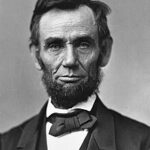Lincoln’s Constitutional Crisis
President Abraham Lincoln suspended habeas corpus in April 1861 without Congressional approval. This decision allowed military authorities to arrest civilians without trial. The Lincoln habeas corpus suspension targeted suspected Confederate sympathizers and anti-war activists. Military commanders detained thousands of civilians across Union states. ⚠️ Chief Justice Roger Taney declared Lincoln’s action unconstitutional in Ex parte Merryman.
The Wartime Decision
Lincoln argued that emergency powers were necessary to preserve the Union. He believed the Constitution’s survival clause justified his actions. Congress was not in session when Lincoln made this decision. The president claimed military necessity overrode normal constitutional procedures. Critics argued only Congress could suspend this fundamental right during emergencies.
Political and Legal Backlash
Democrats condemned Lincoln’s action as tyrannical overreach. 📊 Military tribunals processed over 13,000 civilian cases during the war. Supreme Court Justice Taney issued a writ of habeas corpus for John Merryman. Lincoln ignored the court’s order, creating a constitutional standoff. Congress later endorsed Lincoln’s suspension in March 1863, but debates continued throughout the war.
Impact:
Constitutional Precedent Established
The Lincoln habeas corpus suspension created lasting precedent for executive emergency powers. Future presidents cited Lincoln’s actions during subsequent crises. 🔥 The decision fundamentally altered the balance between individual rights and national security. Supreme Court cases like Ex parte Milligan later restricted military tribunals. Constitutional scholars still debate whether Lincoln’s actions were legally justified.
Civil Liberties Consequences
Thousands of civilians faced arbitrary detention without trial. Military authorities arrested newspaper editors, politicians, and ordinary citizens. ⚖️ The suspension disproportionately affected border states like Maryland and Missouri. Families were separated when breadwinners disappeared into military custody. Many detainees spent months in prison without formal charges or legal representation.
Long-term Political Effects
The controversy strengthened Democratic opposition to Republican policies. Anti-Lincoln sentiment grew in areas with heavy-handed military enforcement. 📊 Voter turnout in 1862 midterm elections reflected public concern about civil liberties. The suspension became a campaign issue in the 1864 presidential election. Modern presidents continue invoking Lincoln’s precedent during national emergencies, from World War II to post-9/11 security measures.
